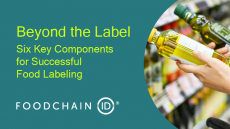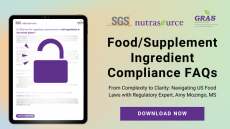Simple nutrition information could be ‘powerful marketing tool’, says Nielsen

Nielsen polled more than 25,000 consumers online in 56 countries for its 2011 Global Survey, and found that while a majority of consumers (53%) considered themselves to be overweight, 59% were confused by nutritional labels.
Globally, nearly half (48%) of consumers were trying to lose weight, and of those, more than three-quarters (78%) were trying to lose weight through dieting, Nielsen said.
Vice president of Global Consumer Insights at Nielsen James Russo said: “Consumers around the world have healthy eating on their minds and consumer packaged goods marketers have an opportunity to help. Consumer-friendly nutritional labeling can be a powerful marketing tool as consumers are hungry for easy-to-understand information.”
According to the Calorie Control Council in the US, the number of Americans dieting in any given year has been increasing, from a third of adults in 2004, to a record high of 54% in 2010. However, recent market research from Marketdata Enterprises has suggested that most US dieters (61%) prefer to approach weight loss while eating regular grocery store items, rather than by eating special ‘diet’ foods, shakes, bars, or meals.
This latest Nielsen report found that consumers in North America had the most confidence in their ability to understand nutritional information, with 58% saying they mostly understood on-pack nutrition facts, compared to 49% of Canadians and just 31% of consumers in the Asia Pacific region.
Skepticism
However, when it comes to on-pack claims, such as “low fat” and “all natural”, consumers are skeptical, the market researcher said. More than two-thirds of global respondents said they believed these claims were never or only sometimes trustworthy.
But some claims are trusted more than others. A third (33%) of survey respondents said they thought calorie count claims were always accurate, and a further 58% said they thought they were sometimes accurate. Vitamin and fat content claims were also widely trusted.
However, nearly 80% of respondents said they never or only sometimes trusted claims of “freshness” or “heart health”.
“Consumers have difficulty trusting more ambiguous attributes compared to the concrete ingredient-based information,” said Russo. “Clearly there is a need and an opportunity for more education to help reduce the skepticism that is apparent around all parts of the globe.”





















